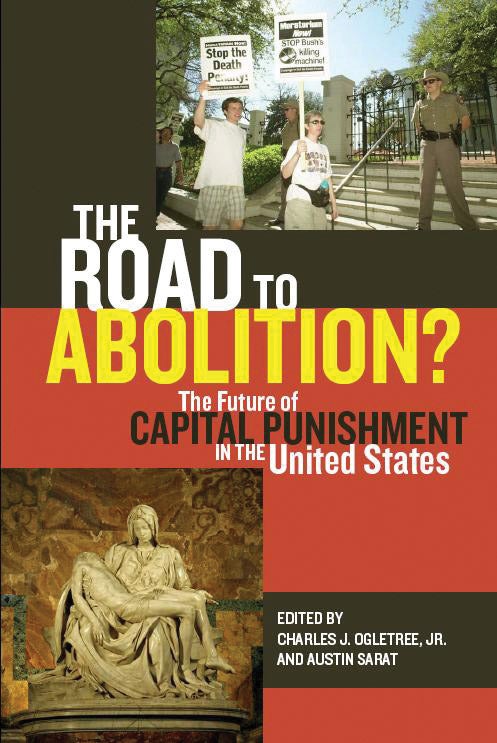In their book,“No Place to Hide: Gang, State, and Clandestine Violence in El Salvador” (Harvard University Press, 2009), Clinical Professor James Cavallaro and Spring Miller ’07 analyze the evolution of violent street gangs and the Salvadoran state’s responses to gang-related and other forms of violence. The findings are based on primary research conducted in El Salvador between 2006 and 2008.
Professor Alan Dershowitz argues against the equation of Hamas’ violent tactics with Israel’s response in his latest book “The Case for Moral Clarity: Israel, Hamas and Gaza” (Committee for Accuracy in Middle East Reporting in America, 2009).
Professor Richard Fallon, a constitutional law scholar, has written his first novel, “Stubborn as a Mule.” Published by Strategic Book Publishing, the novel is set in a small liberal arts college in Maine. Over the course of the book, the school’s president, a right-wing economist, tries to unseat a Republican Senate moderate (and HLS grad). A mule—the school mascot—turns up in the president’s living room and worship of unregulated markets is spoofed in this comic romp of a story.
Professors Jody Freeman LL.M. ’91 S.J.D. ’95 and Martha Minow edited “Government by Contract: Outsourcing and American Democracy” (Harvard University Press, 2009).The book brings together articles addressing the expansion of government outsourcing in fields that include military intelligence, environmental monitoring, prison management and interrogation of terrorism suspects. The book explores the legal, economic, and political concerns that outsourcing raises, and examines what role cost, quality and democratic oversight should play in contracting out government work.
“Prosecuting Apartheid-Era Crimes? A South African Dialogue on Justice” (Harvard University Press, 2009), by Lecturer on Law Tyler Giannini and Clinical Instructor Susan Farbstein ’04, with Samantha Bent ’08 and Miles Jackson LL.M. ’07, examines recently intensified questions about prosecuting crimes committed during apartheid in South Africa. The book includes reflections from former Truth and Reconciliation Commission members, advocates, survivors of apartheid and a variety of government officials.
Professor Ryan Goodman and Lecturer on Law Mindy Jane Roseman edited “Interrogations, Forced Feedings, and the Role of Health Professionals: New Perspectives on International Human Rights, Humanitarian Law, and Ethics” (Harvard University Press, 2009). The collection brings together the writings of a wide range of practitioners and scholars on the involvement of health professionals in human rights and humanitarian law violations.
Professor David Kennedy ’80 underscores the moral ambiguity associated with modern human rights activism in his book “The Rights of Spring: A Memoir of Innocence Abroad” (Princeton University Press, 2009). By focusing on his own experience as a young activist in Uruguay, Kennedy weaves a powerful narrative about the pitfalls of idealism.
“The Road to Abolition?: The Future of Capital Punishment in the United States”
(New York University Press, 2009), edited by Professor Charles Ogletree Jr. ’78 and Austin Sarat, takes on an interdisciplinary exploration of the debate surrounding the death penalty at the turn of the 21st century. This collection focuses on the changing attitudes toward capital punishment in Washington and the possibility of an end to the death sentence in the United States.
“When Law Fails: Making Sense of Miscarriages of Justice,” edited by Professor Charles Ogletree Jr. ’78 and Austin Sarat (New York University Press, 2009), presents 10 original articles in which wrongful convictions are described not as random mistakes but rather as inevitable outcomes in a flawed system plagued by faulty eyewitness identifications, false confessions, biased juries and racial discrimination.
“Corporate Law Stories” (Foundation Press, 2009), edited by Professor J. Mark Ramseyer ’82, examines 11 cases that have reshaped corporate law. In the book, renowned scholars critically examine the complicated and often flawed judgments that helped redefine the legal profession.
Professor Guhan Subramanian J.D./M.B.A. ’98, who holds tenured appointments at both Harvard Business School and Harvard Law School, recently wrote a guide to negotiating deals.“Negotiauctions: New Dealmaking Strategies for a Competitive Marketplace,” (W.W. Norton & Company Publishers, 2010) integrates both auction theory and negotiation theory in a practical and accessible way.
Assistant Professor Jeannie Suk ’02 wrote “At Home in the Law: How the Domestic Violence Revolution Is Transforming Privacy” (Yale University Press, 2009). In the book, Suk suggests that the legal system’s laudable goal of protecting people-primarily women-from domestic violence has had significant, unintended consequences that impinge on privacy in the home and are harming families, especially in lower-income communities where police presence is more pervasive and intrusive.
Harvard Law School Professors Yochai Benkler ’94, Frank Michelman ’60, Cass Sunstein, Mark Tushnet, and Noah Feldman, all contributed to a recently published book “The Constitution in 2020.” The book, which includes 23 essays about the future of the Constitution, is designed to contest the conservative idea that constitutional law should not be influenced by contemporary understandings of law and the political landscape.
